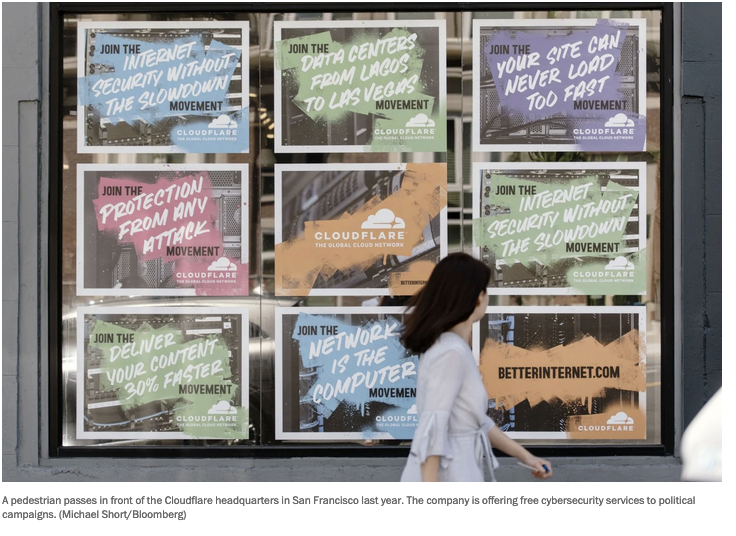The desperate need for better campaign cybersecurity should be clear just from the past few weeks, if it wasn’t already, after reports that Russian hackers were digging around Ukrainian computer servers, possibly searching for dirt on Joe Biden, and that Pete Buttigieg’s chief information security officer — the only known, dedicated cybersecurity staffer in the entire Democratic field — had departed, replaced only by an outside contractor.
And yet, even with growing evidence of systemic vulnerabilities to foreign interference four years after Russia’s unprecedented, expensive and expansive attack on the 2016 election, we’re still relying on a patchwork of nonprofit and private companies to pitch in and protect us. Despite lots of words from well-meaning officials at the Department of Homeland Security, the Justice Department and the FBI, election security remains woefully undermanned and underfunded; former homeland security secretary Kirstjen Nielsen was reportedly told not to bring up the issue with the president, on the advice of acting White House chief of staff Mick Mulvaney, who allegedly told her that it “wasn’t a great subject.”
In the face of such high-level inaction and willful blindness, the fact that we need companies like Cloudflare to help defend candidates is a failure. Protecting our democracy shouldn’t be the responsibility of civic-minded businesses. We strictly limit corporate involvement in other areas of campaigns: We wouldn’t allow Blackwater to “donate” protective details to candidates, nor would we let Chase “donate” banking services. Boeing, Lockheed Martin and Chevrolet aren’t allowed to donate special planes, helicopters or armored vehicles to help keep candidates safe as they move about the country.




